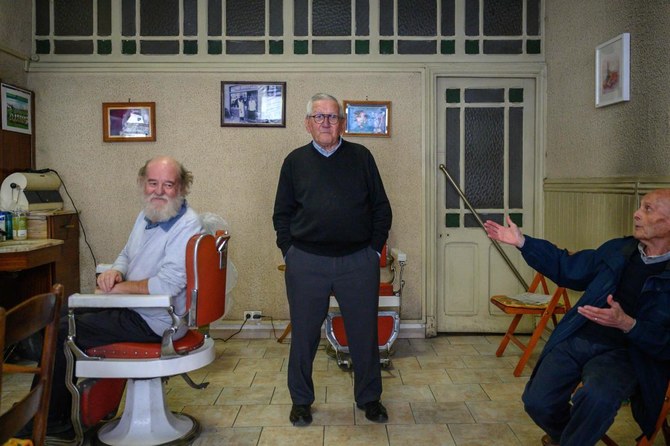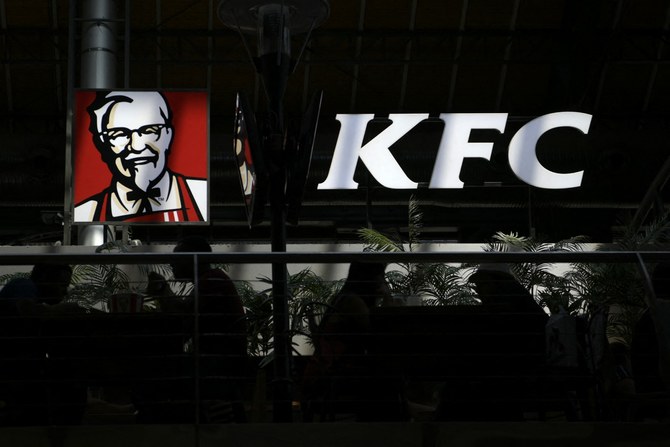DAMASCUS: Syrian student Nour wistfully examines her bare ring finger, then scans fellow classmates around her at Damascus University. Amid the sea of women, there’s no eligible single man in sight.
At 30, Nour says she is eager to get married — but Syria’s protracted conflict means potential suitors have emigrated, joined the army or lost their lives.
“I hope a wedding ring will decorate this finger someday,” says Nour, who asked to use a pseudonym to speak freely.
“But there are no more young men here. They all left years ago. I’m noticing a drop year after year.”
Syria’s conflict erupted in 2011 with mass protests, just as Nour was preparing to graduate with her first degree in economics.
She recalls fielding weekly marriage proposals at the time.
“But today these proposals have almost completely stopped. They’re limited to ones I see as incompatible for a normal marriage — either from men who are already married or old!“
To pass the time, Nour has opted to pursue her second degree at Damascus University in literature.
“I’ve got nothing to fill my time with. No friend, no lover, no husband,” she sighs, pulling her dyed blonde hair away from her face.
“I’m terrified I’ll find a grey hair before I get married. I’ll definitely lose all hope at that point.”
In Syria’s broadly conservative society, women were generally expected to marry in their 20s, but the lack of eligible bachelors has somewhat relaxed those norms.
“Now, because of the crisis, a woman could marry at 32 without people saying she’s late to wed,” said Salam Qassem, a psychology professor in Damascus.
More than 340,000 people have died in Syria’s war, and thousands of men have been deployed on front lines far from home.
Of the country’s pre-war population of 23 million, more than five million have fled the country and even more are internally displaced.
That has unraveled the social networks parents once used to find potential spouses for their sons and daughters, said Qassem.
“Neighbours used to all know each other in the past, or could get to know each other easily. But today, families are scattered all over the place,” she said.
Some Syrians have creatively circumvented such obstacles with “Skype weddings,” where brides and grooms in different provinces or even countries authorize a third party to sign their marriage licenses as they exchange vows online.
Yusra, 31, said the fact that she has yet to wed makes her parents fret that she will “miss the marriage train.”
“I don’t want you to become a spinster,” her mother warns her repeatedly, advising her to “look around carefully to find a catch.”
But much like Nour, Yusra — who works as a government translator — finds herself surrounded by women or by male colleagues that she considers too old to be compatible.
“Everyone knows a huge section of Syria’s youth has paid the biggest price for what’s happening,” the tall, slender woman told AFP.
“Some emigrated. Some are fighting. Financial considerations prevent others from even thinking about getting married — not to mention, of course, those who died over the past seven years,” Yusra said sadly.
On top of all that, she said the war has “widened the sectarian rift in society,” making people from different religious backgrounds less likely to get hitched.
The war has also led to skyrocketing inflation, widespread unemployment, and economic losses estimated at more than $225 billion — making 37-year-old Firas balk at the thought of a wedding.
“Rising living costs and other financial factors make getting married like mission impossible,” said Firas, who works in a washing machine repair shop in the Damascus neighborhood of Bab Touma.
Mortar rounds fired by rebels entrenched outside the capital have landed near his shop, endangering his life and those of this customers.
“I can’t make plans or imagine my future. I’m living day by day — God knows if I’ll be alive tomorrow,” said Firas, who keeps a pencil tucked behind his ear even when he is not in the shop.
“Anyone that gets married in these circumstances is crazy. I can’t guarantee a safe and dignified life for myself, so how I could I guarantee one for my wife and children?“
In a nearby district, medical student Munzer Kallas hangs a massive calendar on his bedroom wall, with key dates circled in red.
They mark upcoming application deadlines for scholarships to pursue his studies abroad.
“I don’t think about marriage at all. Marriage needs stability, and I decided to follow my brother to Germany,” said Kallas, 26.
“I’m better off looking for a plane ticket than a wife.”




























